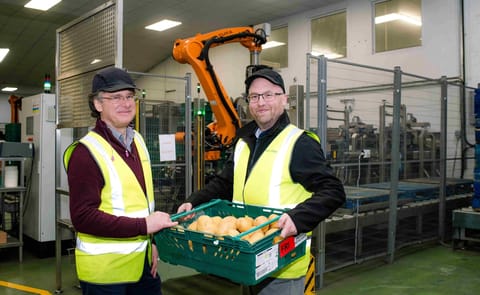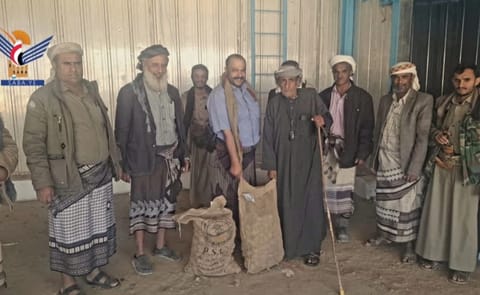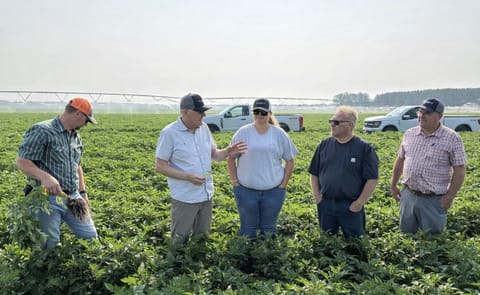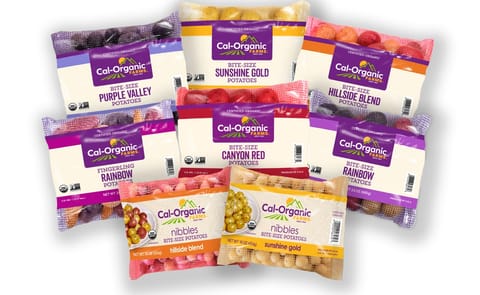Robert Irving, president of Cavendish Farms, delivers a speech to the Prince Edward Island Young Farmers Association. Irving said the company is currently working on developing potatoes that can withstand dry growing conditions.
Cavendish Farms invests in potato breeding to deal with climate change

Cavendish Farms is working to develop potato varieties that can thrive in dry growing conditions on Prince Edward Island, says the company’s president Robert Irving.
Irving was a guest speaker during the P.E.I. Youth Farmers annual general meeting at Murphy’s Community Centre late last month
Robert Irving, president of Cavendish Farms:
The last two harvests of P.E.I. potatoes have produced lower than average yields, partially because of hot summer temperatures with little rain. Growers saw further complications in 2018 with an unusually rainy fall, which led to thousands of acres of potatoes being left in the ground.
To make up for the shortfall, Irving said Cavendish Farms imported millions of pounds of potatoes from other provinces and the United States for its New Annan plant.
Robert Irving:
While Irving said that would not be sustainable, he added changing weather was a global issue.
Robert Irving:
Irving was a guest speaker during the P.E.I. Youth Farmers annual general meeting at Murphy’s Community Centre late last month
Robert Irving, president of Cavendish Farms:
“We’ve got a whole seed investment now.”While Irving’s presentation focused on customer care, during a question and answer session he spoke about the importance of developing potatoes that could thrive in drought-like conditions.
“We’ve got a seed specialist and we’re putting up a seed farm here to develop new types of seed varieties and new types of potatoes to get better yield, better quality.”
The last two harvests of P.E.I. potatoes have produced lower than average yields, partially because of hot summer temperatures with little rain. Growers saw further complications in 2018 with an unusually rainy fall, which led to thousands of acres of potatoes being left in the ground.
To make up for the shortfall, Irving said Cavendish Farms imported millions of pounds of potatoes from other provinces and the United States for its New Annan plant.
Robert Irving:
“To bring in potatoes from Idaho, you’re talking millions and millions and millions of dollars.”Irving was asked if Cavendish Farms, which is the largest purchaser of P.E.I. potatoes, would stay committed to the province if farming seasons continue to provide low yields.
While Irving said that would not be sustainable, he added changing weather was a global issue.
Robert Irving:
“If we don’t have potatoes, we don’t have a future.”
“You’ve got a thriving business here, a thriving agriculture. We’ve got to make sure we’re proactive with how we deal with it because this global change in weather is impacting many areas.”
Like to receive news like this by email? Join and Subscribe!
Get the latest potato industry news straight to your WhatsApp. Join the PotatoPro WhatsApp Community!
Highlighted Company
Sponsored Content
Sponsored Content
Sponsored Content
Sponsored Content










